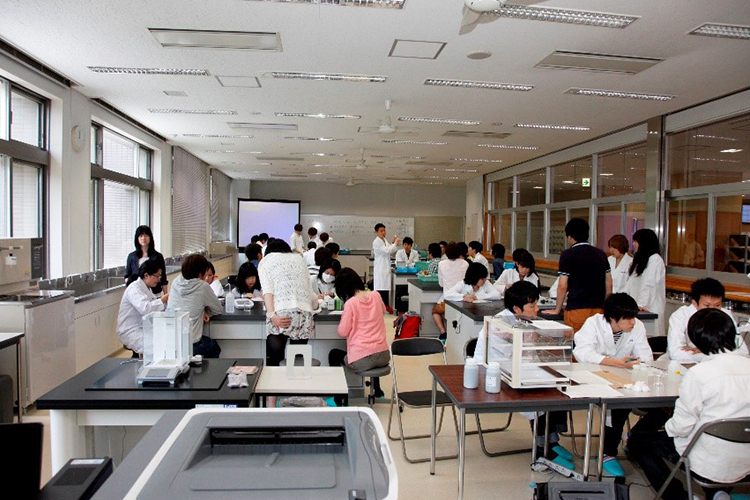- HOME
- Faculty of Environmental Studies
Faculty of Environmental Studies
Link learning and research interests with
interests in urban nature and the future.

Two types of approaches are required to address environmental problems such as global warming, desertification, and food and water issues, which are among the greatest challenges for modern times.
The first is an approach to the natural sciences that enables an examination of global- and regional-scale natural phenomena, and the mechanisms of behind the degradation and restoration of nature.
The second is a social science approach analyzing ways to alter the consciousness of individuals and communities–and how these operate within the global community–and society as a whole.
A major strength of the Faculty of Environmental Studies is its ability to foster practical skills in the field by integrating these two approaches while achieving synergy with the Faculty of Informatics located at the same campus.
The most prominent features of the program includes its classroom lectures, and the opportunity to use all five senses in forests, regions, and industries in Japan and abroad to hone communication skills, initiative, and action.
Come experience four years of "achieving progress" at our faculty, which produces graduates who are active in a variety of areas.
Faculty of Environmental StudiesRestoration Ecology and
Built Environment
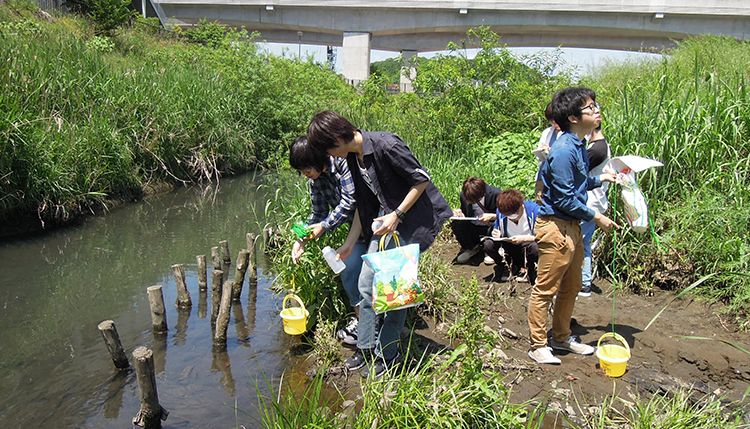
Creating a natural environment aiming for harmony, symbiosis, and the integration of ecosystems, cities, and anthropogenic activities.
Restoration Ecology and Built Environment aims to create comfortable and fertile environments and spaces by harmonizing ecosystems, cities, and anthropogenic activities with the environment, while coexisting with nature and reducing the burden on the environment.
To realize an environmentally symbiotic and sustainable society, we aim to cultivate resourcefulness in students, through various experiences facilitated by the Faculty, such that they have capacity to be leaders in the future. The experiences will be related to ecosystems, urban environments, acquiring and using critical thinking skills, and obtaining certification.
Students may also develop their human resource skills through programs and field work abroad, enabling them to be active in a global context.
Advantages of studying at the Restoration Ecology and Built Environment.
Students at Restoration Ecology and Built Environment will acquire the following skills and abilities to achieve their goals.
- Critical thinking
skills - We believe that scientific thinking skills are important; as such, students study theories and acquire knowledge in fields such as biology, ecology, environmental chemistry, physics, mathematics, urban engineering, architecture, public administration, law, sociology, and economics. This knowledge will serve as a base to understand environmental issues.
- Critical thinking
- Field capabilities
- We believe in the importance of practical capabilities. As such, in the ecology and urban environment fields, students learn how to better understand real-world situations via activities such as field surveys, taking chemical measurements, and surveying. Students are also taught how to use all five senses to perceive conditions in the field and acquire skills to use these scientifically.
- Analysis, evaluation,
forecasting, planning,
and design skills - Students will acquire the skills needed to elucidate the mechanisms underpinning environmental problems, assess real situations, and make predictions. They will also develop a capacity to plan and design solutions, and learn how to convey such solutions visually and via information technology.
- Analysis, evaluation,
- Business and career
development skills - Students will enhance their group discussion, presentation, and other practical skills to improve their ability to work collaboratively; this is necessary in the business world and will be achieved through a variety of exercises. We support students in acquiring various certifications, including Assistant Surveyor and Assistant Natural Restoration Specialist, which will be possible by attending the lectures prescribed. We also support students in acquiring many other qualifications, such as Assistant Professional Engineer and Real Estate Transaction Agent.
- Business and career
One scene of Ecology and Environment class
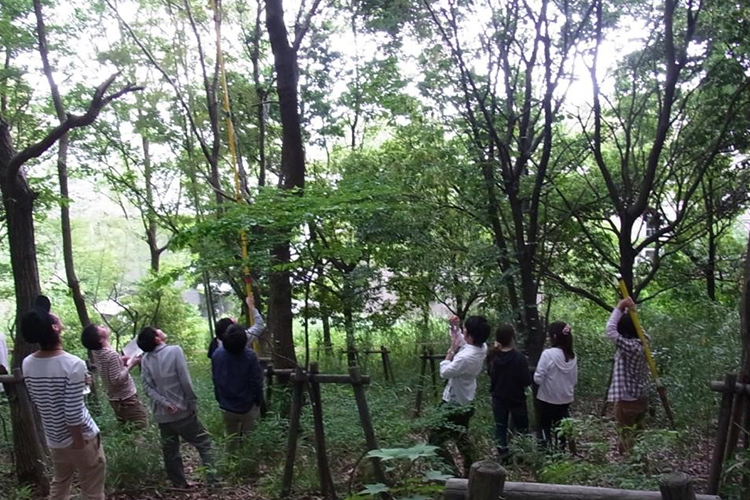
Learning to measure the condition of forests and conservation forests 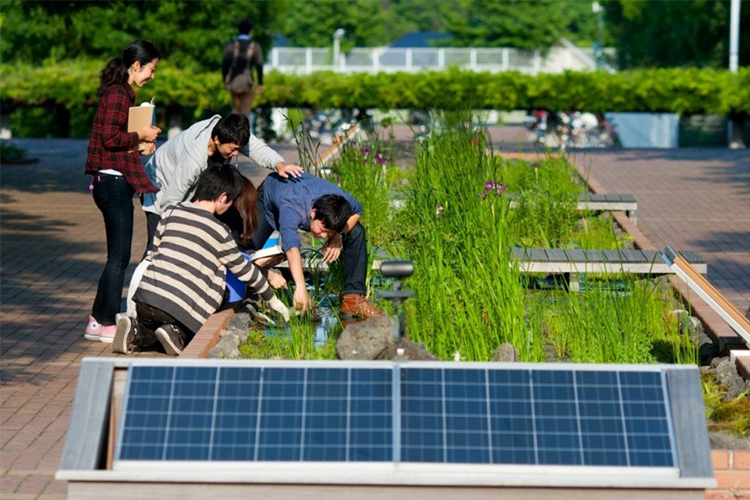
A class learning how to manage a biotope
A class on Environmental Chemistry
A field course on the Urban Environment
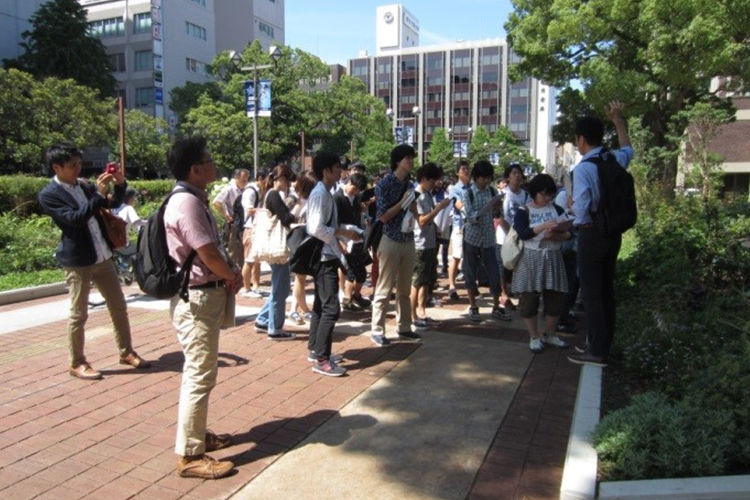
Students will learn about urban environmental regeneration and greenery 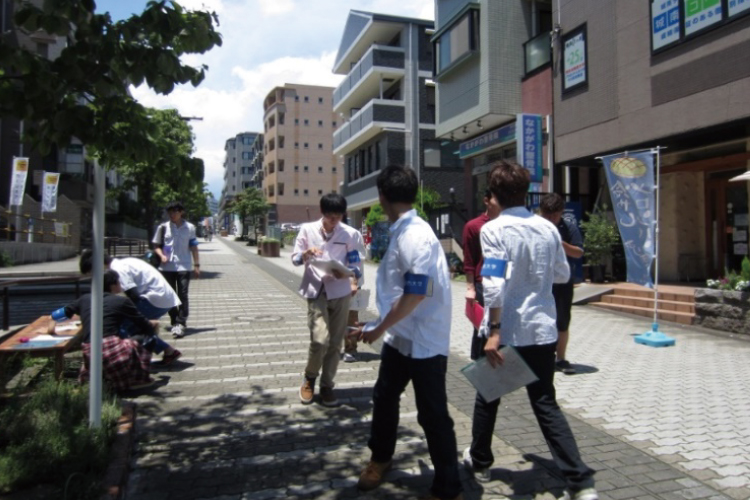
Students will understand the current state of urban spaces
Faculty of Environmental StudiesEnvironmental
Management and
Sustainability
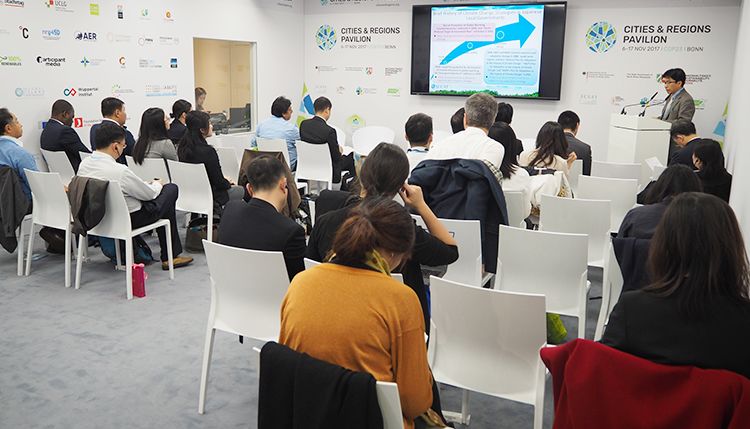
Building capacity to develop solutions for increasingly serious environmental problems.
This course provides students with the opportunity to study the basics of environmental issues alongside cutting-edge environmental management and policy. This will help companies and regions within the global economic context achieve sustainability. Students will also acquire an ability to plan, formulate, and implement solutions to social and environmental problems via systems thinking.
Human resource development and objectives of education
The environmental problems we confront are a result of our daily lives and business activities. These problems include global warming, waste generation and disposal, the establishment of a recycling-oriented society, environmental risks from chemical substances, air pollution, water conservation, and biodiversity decline.
The objective of Environmental Management and Sustainability is to promote education and research on environmental management and policy. We also seek to develop human resources to formulate decisions needed to achieve a sustainable society and address these environmental issues.
Advantages of Environmental Management and Sustainability
Students of Environmental Management and Sustainability acquire planning, formulation, and practical skills through three types of education.
- Practical education
in collaboration with
companies and local
governments - Environmental Management and Sustainability collaborates with companies, citizen groups, and local governments to promote education based on problem-based learning (PBL). Students undertake practical fieldwork and develop communication skills necessary for the future. This includes learning how to conduct research and analysis and building relationships with people.
- Practical education
- Study of science
and engineering
based on the
social sciences - This department is interdisciplinary and allows students acquire knowledge in the social sciences, including management, economics, law, accounting, and international affairs. They also obtain skills in the science and engineering fields necessary for environmental management while studying the earth sciences, energy, management engineering, and materials sciences.
- Study of science
- Promoting the
development of
global human
resources - We offer participation in the Tokyo City University Australia Program (TAP) to half the students in the department. This program also offers a wide range of PBL-type classes that take place overseas as well as classes that address global issues. There will be support from faculty members with extensive overseas experience.
- Promoting the

